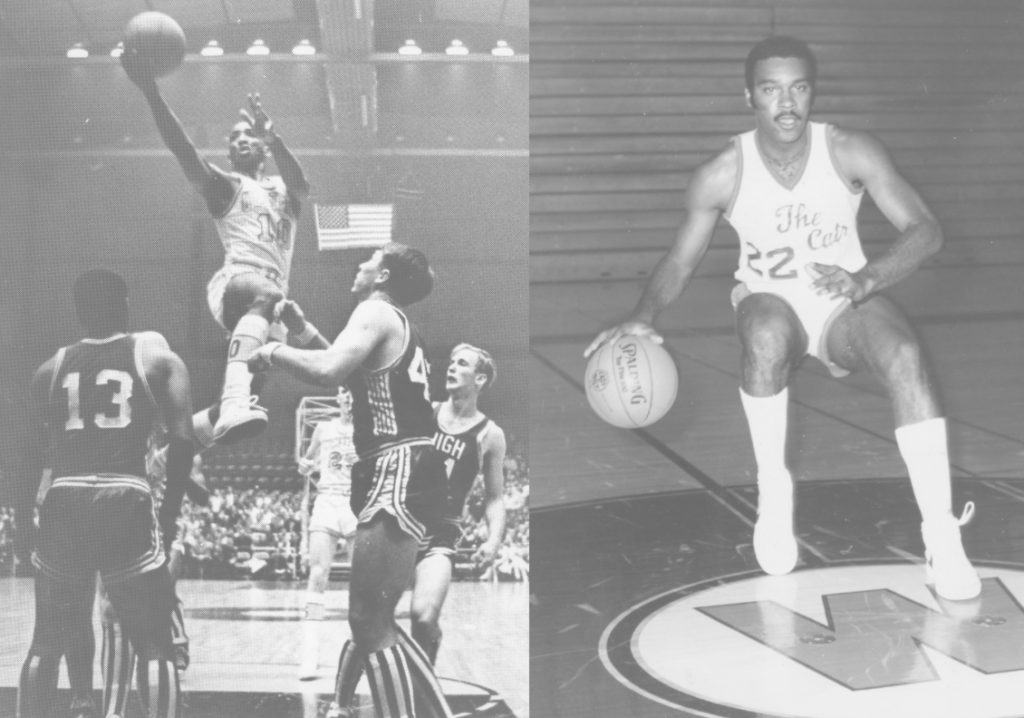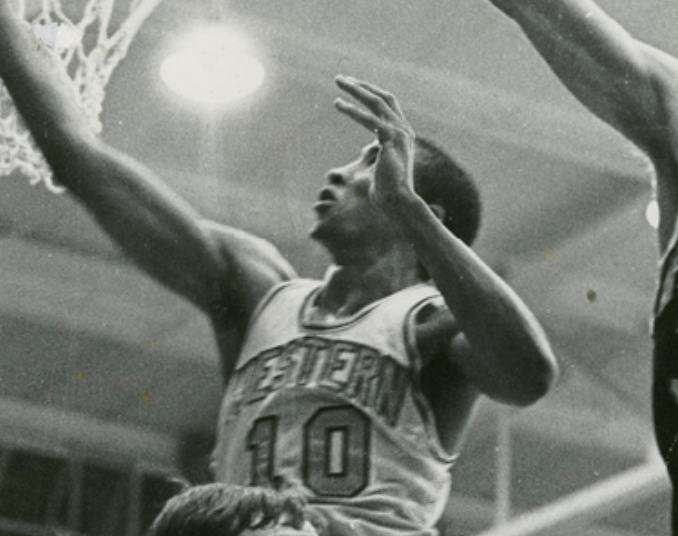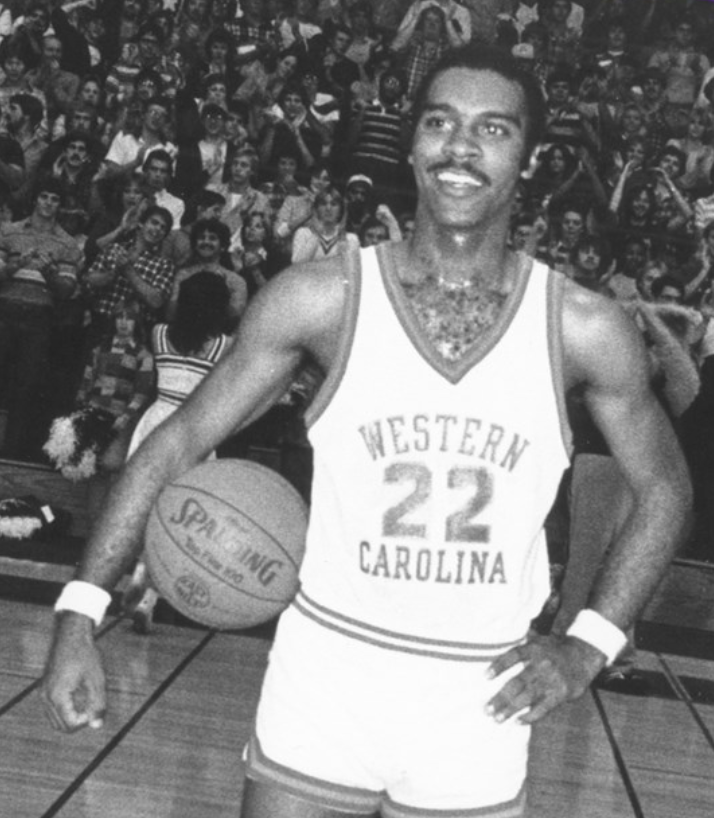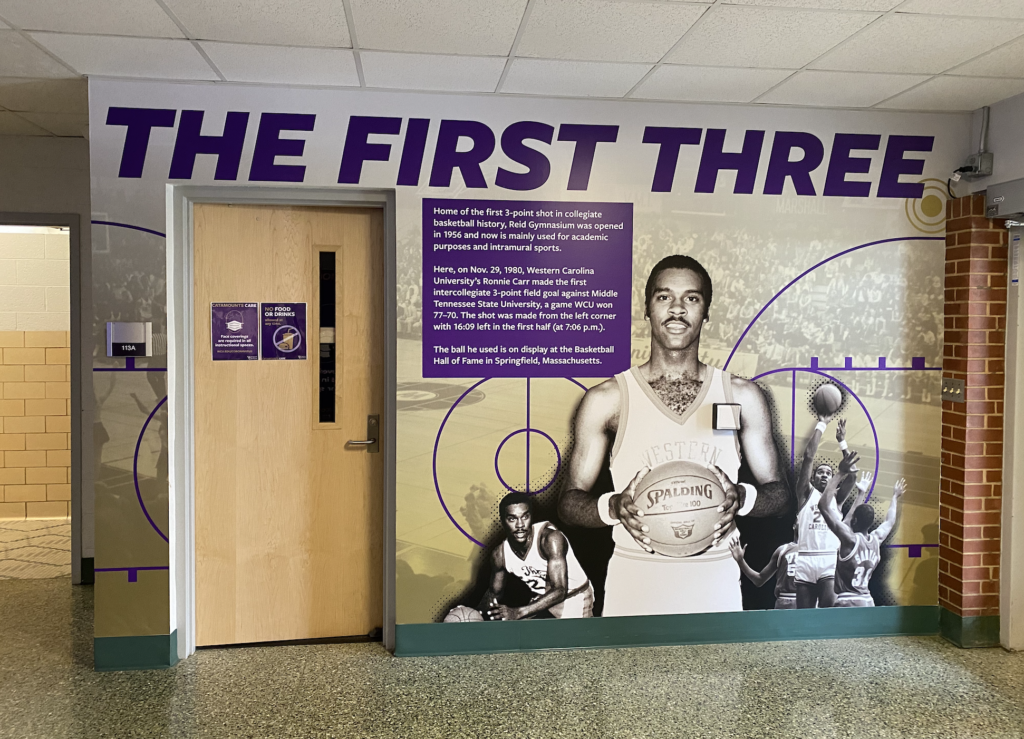
It’s not every day when two athletic legends from Western Carolina University get to sit down and talk about their glory days.
On Wednesday, Feb. 23, WCU hosted an episode of Western Wednesday Replays that featured two WCU basketball legends, Henry Logan and Ronnie Carr.
It was also attended by Marty Ramsey, director of WCU Alumni Engagement, and Alex Gary, Director of Athletics.
Western Wednesday Replays is a monthly event featuring WCU alumni, faculty, or staff members who explore their area of expertise and more in a virtual conversation.
In a Zoom call, Henry Logan and Ronnie Carr, along with Steve Smith, a former longtime WCU sports information director/historian, reminisced about their history. Their topics ranged from their experiences at Western to how their lives were afterward.
Logan and Carr talked with Steve Smith about their experiences with teammates, coaches, and more. They talked about the players they played against and the games they remembered the most. The program on Wednesday runtime was one hour (6-7 p.m.)

Henry Logan is known as the first African-American collegiate athlete at WCU, which at the time was mostly white. As a guard, he was a four-time NAIA and Associated Press All-American from 1965 to 1968.
He owns virtually every school scoring and assists record, which includes total career points (3,290), total career assists (1,037), most points scored in a single game (60), and the highest career points average (30.7). He also won a gold medal for the United States in the 1967 Pan American Games.
After Western, he was drafted by the Oakland Oaks in the 1968 ABA Draft. There, he helped the Oaks win their one and only ABA championship. Despite that, the team was sold to Washington the very next year in 1969. They were named the Washington Caps and that was where Logan played his last full season before succumbing to injuries.
Honors followed Logan soon after. He was inducted into the Western Carolina Hall of Fame in 1990. He was also inducted into the North Carolina Sports Hall of Fame in 2000 with Mike Krzyzewski, famous coach of the Duke Blue Devils.
Again, he is most credited for opening the doors of integration for athletic programs in the southeast region. Logan, a native of Asheville, NC, stated that the biggest reason why he chose to go to WCU was because of his mother.
“My mother wanted me to break the color barrier,” Logan said. “She wanted me to go to Western and stay close to home. She didn’t want to travel too far to see me play.”
While Logan was accepted by his peers and became a great player for Western, there were moments when it wasn’t always perfect.
During the chat, Steve Smith brought up one moment that happened during a tournament in Louisiana. A local sheriff ordered Logan and another teammate, Herb Moore, could not play here. Logan said he “hated it” and thought about coming home.
“I hated that very much,” said Logan. “I wanted to come home. I was going to quit college. That day, that night. But, my dear mother told me ‘do not worry about it. God is on your side. Don’t quit playing’.”
Good thing he continued because he would soon become one of WCU’s best and most popular players. He also was an inspiration to many future African-American athletes after him, which fellow athlete Ronnie Carr made clear that night.
“He set the foundation,” Carr said. “And I must always acknowledge that. I stand on his shoulders proudly.”

Photo courtesy of WCU Athletics
Ronnie Carr is also another athlete to admire. From 1979 to 1982, Carr was a two-time All-Southern Conference and made the All-Freshman team. He was a catalyst that helped the Catamounts have three straight winning seasons, including a 19-win season in 1981-1982.
Carr is most known for being the first collegiate player to make the first three-point field goal on Nov. 29, 1980.
This is an achievement that has been acknowledged and documented by the National Basketball Hall of Fame in Springfield, Mass. This was a feat achieved over 40 years ago.
According to catamountsports.com, when commemorating the event, Carr had no idea what his three-pointer would do to impact college basketball. He even said it again during the Western Wednesday chat.
“I had no indication at that time what (the shot) would do for the game of college basketball,” he said. “I had no idea that it would help revolutionize the game; I had no idea of the potential revenue that it could bring to the game, the significance of what it meant to the game of basketball.”

Unfortunately, his playing career was cut short because of a terrible automobile accident during his 1982-1983 senior year.
He sustained multiple injuries, which include a broken collarbone, broken arms, broken legs, and more, which lead to multiple lung and heart surgeries. He also said in the chat on Wednesday that he had brain surgery a few years ago because of inflictions he still felt from the accident.
Carr stated that it was a difficult time for him after the accident, especially since he never was medically cleared to play again. But he says that he has moved on and feels good today.
Despite what happened to him, Carr continued on, graduated from WCU, and was even the student assistant coach in his senior year. He was awarded the U.S. Basketball Writers Association (USBWA) Most Courageous Award in 1983, which “annually recognizes a player, coach, official or administrator who demonstrated extraordinary courage reflecting honor on the sport of amateur basketball.”
He was even drafted by the Atlanta Hawks in the 1983 NBA Draft, though he was never able to play professionally. Carr was later inducted into the Western Carolina Hall of Fame in 1991.
The program also allowed viewers to ask questions and have them answered by the legends themselves. Some of the questions and comments even came from different people who were WCU Alumni. The Q and A would carry on until the program ended at 7 p.m.
One comment that summed things up came from Betty Allen, former President of the Alumni Association. “(I’m) thankful that both of these talented athletes and fine men chose to come to Western Carolina,” she said. “Two of our most greatest treasures.”


